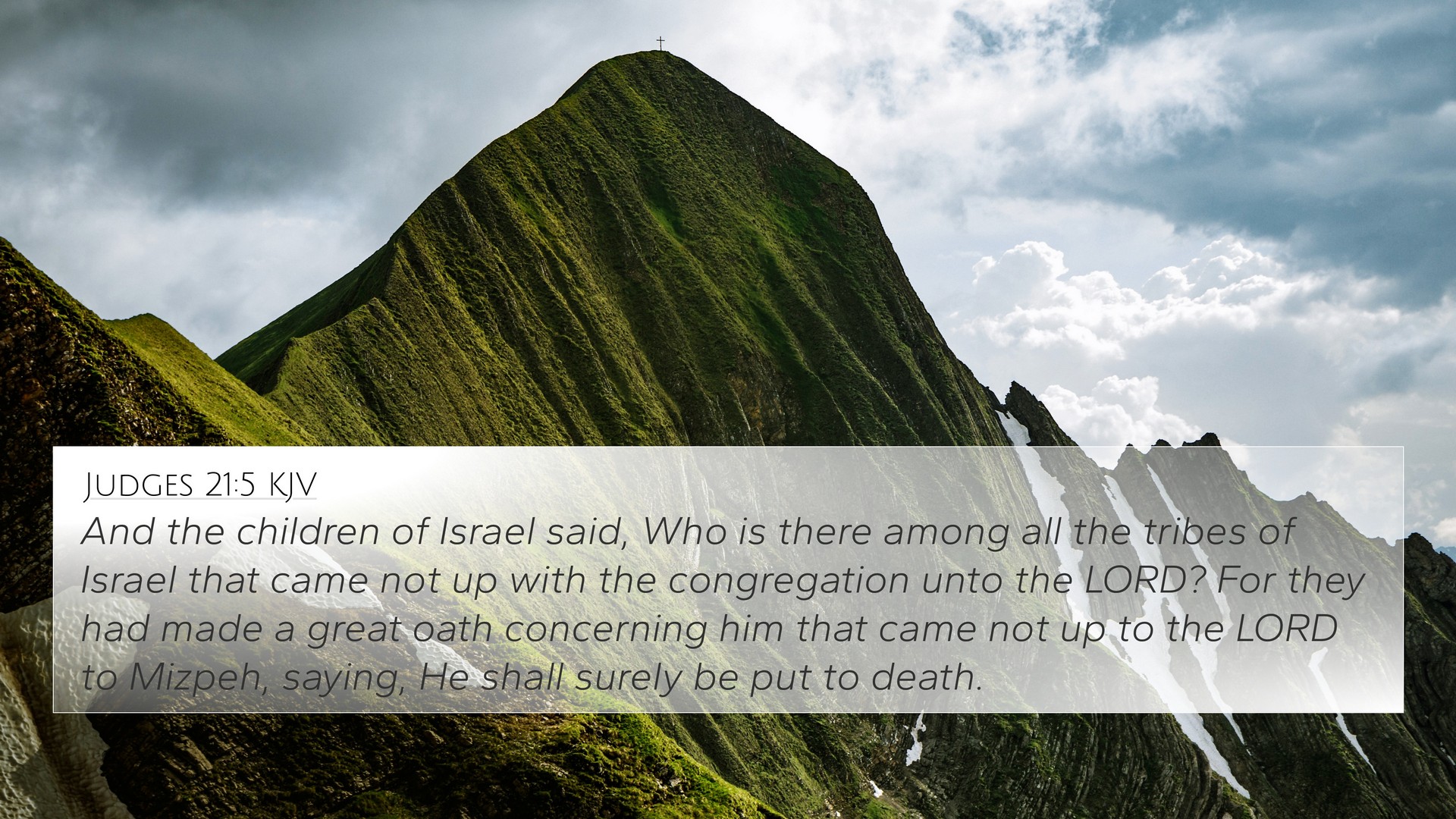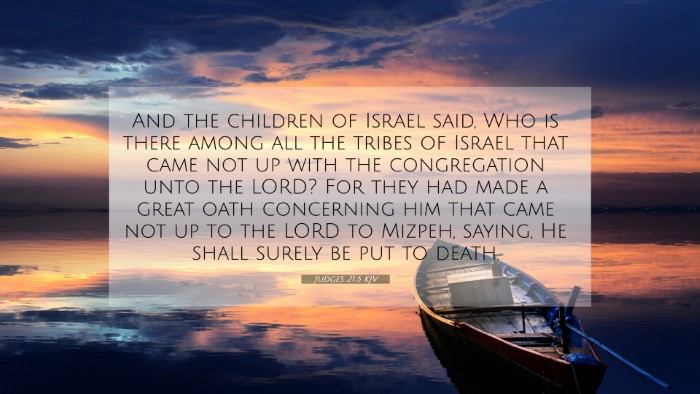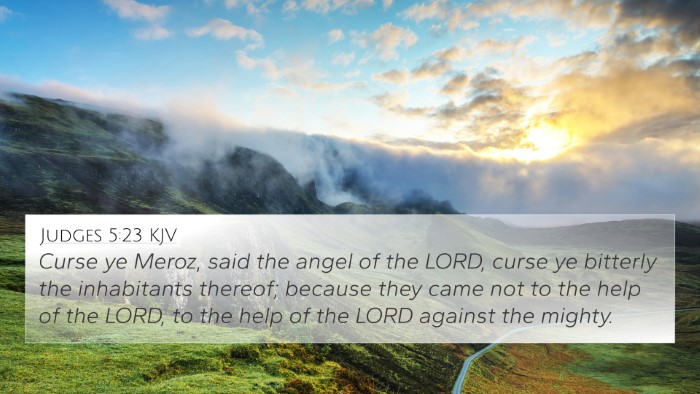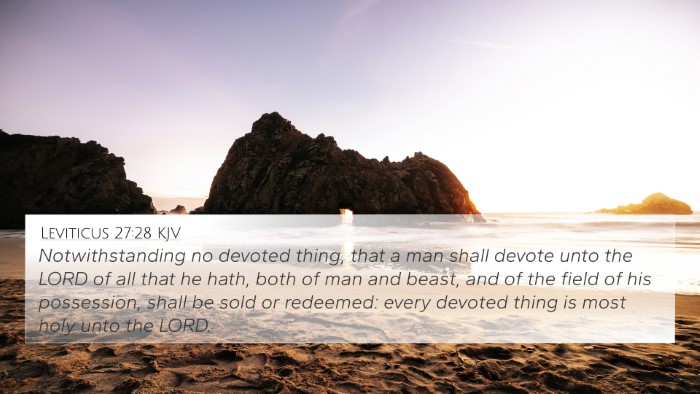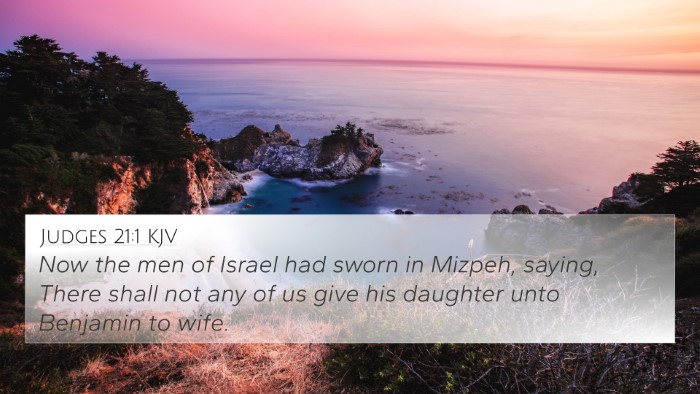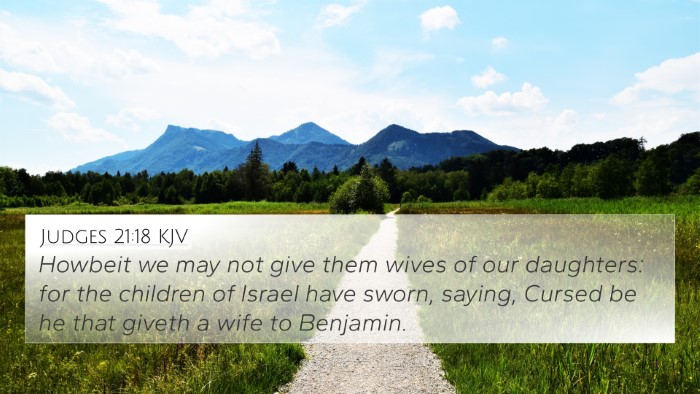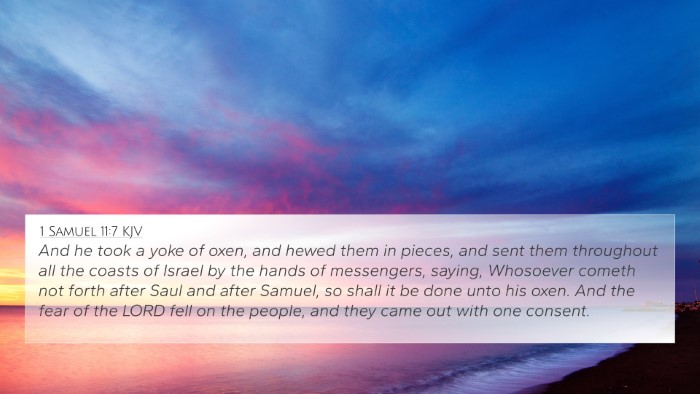Understanding Judges 21:5
Judges 21:5 states: "And the children of Israel said, Who is there among all the tribes of Israel that came not up with the congregation unto the LORD? For they had made a great oath concerning him that came not up to the LORD to Mizpeh, saying, He shall surely be put to death."
Summary of Context
The book of Judges recounts a tumultuous period in Israel's history where there was no central leadership, and the tribes often acted in accordance with their individual interests. Judges 21 concludes the narrative concerning the aftermath of a significant and tragic civil conflict against the tribe of Benjamin. The Israelites come together to mourn and seek guidance from God regarding the fate of their brethren.
Meaning and Interpretation
The verse illustrates the seriousness of oaths made among the Israelites and the gravity with which they approached communal obligations. Here are insights derived from public domain commentaries:
- Matthew Henry: Henry highlights the accountability of the Israelites to their vows and the implications of collective responsibility. The oath signifies the high stakes of their commitment to God's commands and their community's welfare.
- Albert Barnes: Barnes notes the context of the vow which reflects the urgency given the turmoil that ensued from civil strife. The unity in purpose underscores a collective dependence on divine instruction.
- Adam Clarke: Clarke emphasizes the moral implications of the Israelites' decision-making, pointing out that their dedication to the vows made extends beyond mere ritual, suggesting that they were grappling with larger themes of justice and mercy.
Thematic Connections
Judges 21:5 serves as a critical reflection on the themes of obligation, community, and divine justice. Here are thematic connections that link this passage with others in the Bible:
Cross-References
- Deuteronomy 23:21-23: Discusses the importance of keeping vows made to God.
- 1 Samuel 14:24: Reflects on how oaths can impact community dynamics.
- Psalms 15:4: Attributes blessings to those who keep their promises.
- Matthew 5:33-37: Jesus teaches about the nature of vows and integrity.
- James 5:12: Advises on the importance and seriousness of making promises.
- Hebrews 5:4: Discusses the nature of being called and taking oaths.
- Proverbs 20:25: Warns about making vows without considering the consequences.
Tools for Exploration
For any individual seeking to delve deeper into Bible verse cross-references, various resources can provide clarity and insight:
- Bible concordance to locate specific terms and their occurrences.
- Bible cross-reference guide that illustrates connections between verses.
- Cross-reference Bible study methods to engage in a thematic exploration.
Conclusion
Judges 21:5 encapsulates key principles regarding communal responsibility and the implications of oaths taken before God. It serves as a reflective passage about the moral and ethical responsibilities of believers, encouraging them to consider the weight of their commitments in light of biblical teachings on integrity and righteousness.
By understanding the connections between Bible verses, one can enrich their study of Scripture and gain a profound insight into God's desires for His people and their conduct towards one another. This can lead to a more holistic understanding of faith, demonstrated through an exploration of themes, moral commitments, and divine justice.
